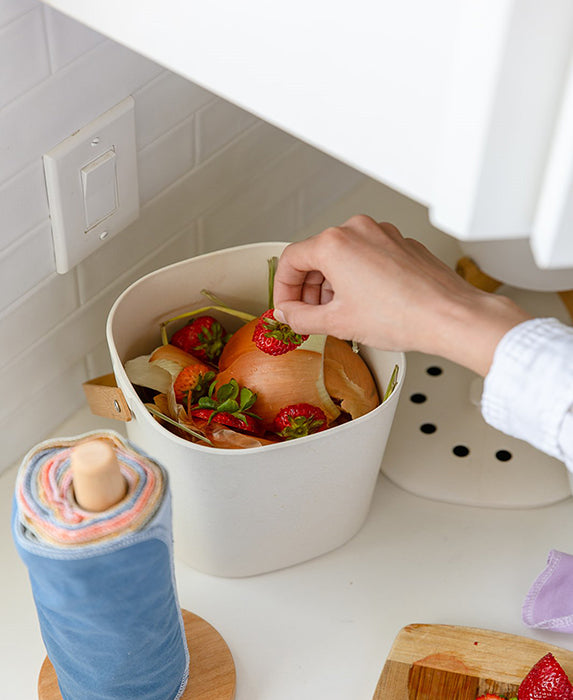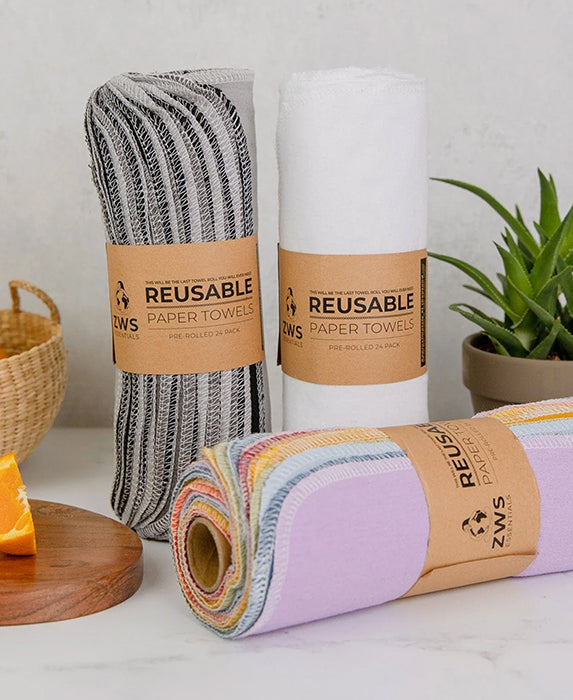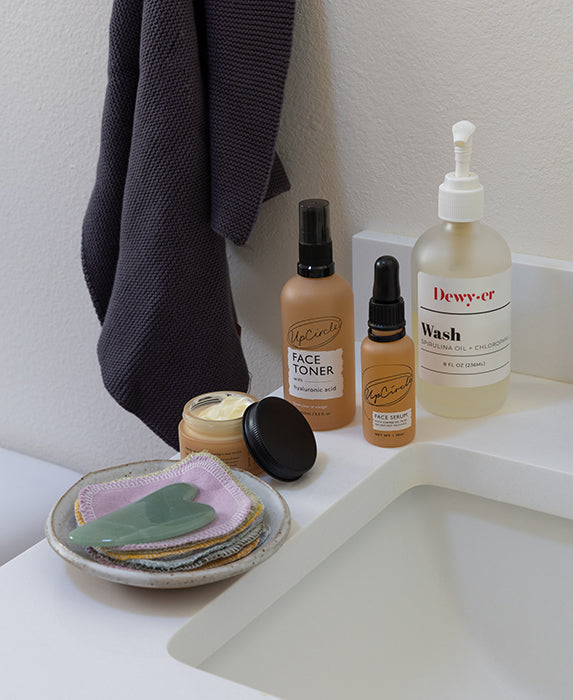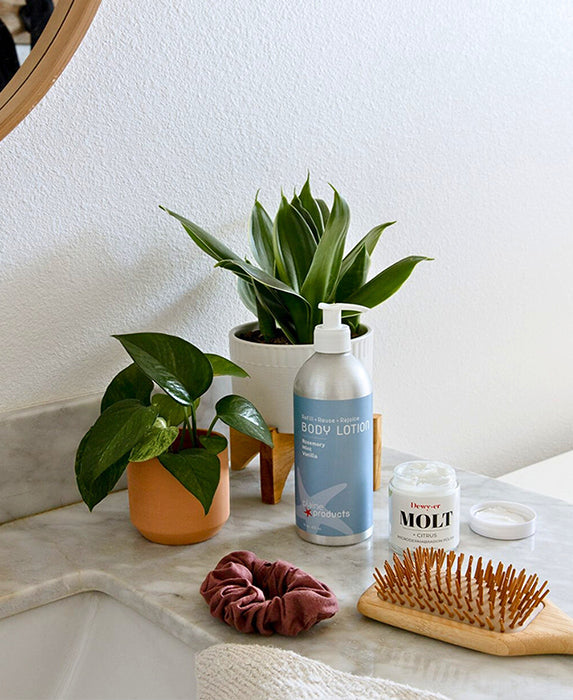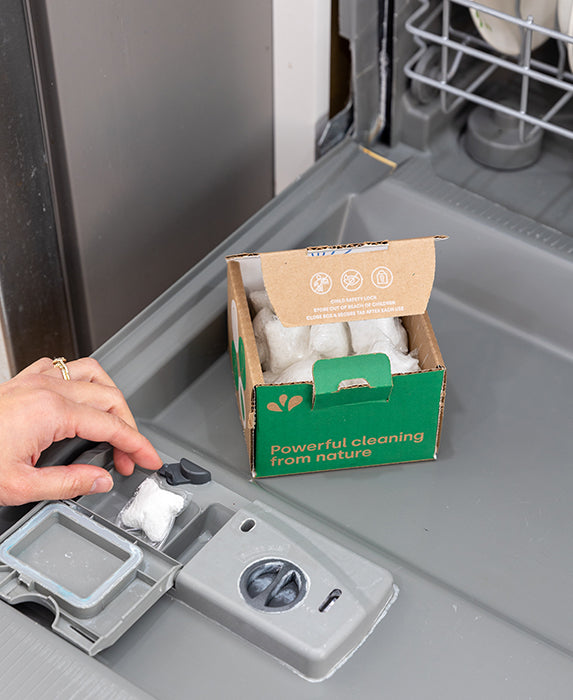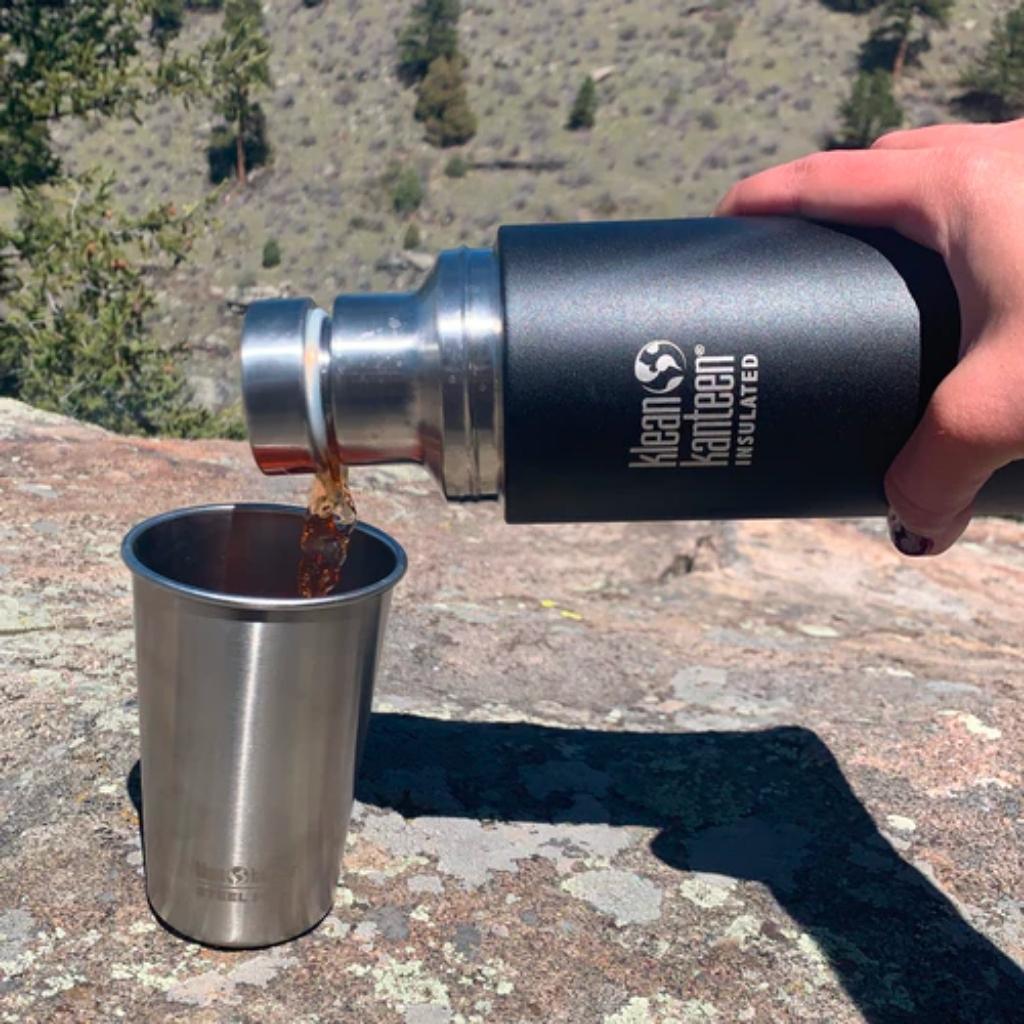From K Cups to non-recyclable cups, you might have heard that the coffee ritual can produce a lot of waste. Did you know that the number of K-cups in landfills could wrap around the Earth more than 10 times and that 99.75% of coffee cups don’t end up getting recycled?
Recycling K-cups is complicated and requires breaking the pods down by separating the plastic, aluminum, organic material, and paper filter. It’s an extra step many people just don’t have time for. The result? Over 75 million American homes are using K Cups daily, disposing the majority of them into the garbage, or trying to recycle them incorrectly.
And disposable coffee cups? Americans throw 25 billion coffee cups in the trash each year.
Don’t fret! There are plenty of ways to get your caffeine fix without creating unnecessary waste in the process. Read on for ways to enjoy your daily cup of coffee sustainably – plus get simple tips for buying coffee ethically sources and disposing of grounds properly.
BYOC: Bring Your Own Cup
If you’re a coffee lover, reusable cups, mugs and tumblers will be your best friend. For your home brewed coffee, always go for your favorite coffee vessel over a disposable to-go cup! Not only will it reduce waste, but investing in an insulated mug will keep your hot drinks warmer for longer!
If you’re heading to your favorite go-to coffee shop, you can reduce about 23lbs of waste every year by bringing your own mug. Bringing a reusable cup not only has a large impact on waste in landfills. In fact, coffee cup production involves the burning of over six million pounds of coal burned per year. Learn more about carbon emissions here.
Enjoy iced coffee? There are plenty of reusable coffee tumblers that come with a reusable straw, saving waste on two fronts! You’ve probably heard about the impact of plastic straws on the environment – but asking for an iced coffee cup without a straw in a drive-thru lane or with your takeout order is easier said than done. Keeping your tumbler in your car makes remembering to use it that much easier.
Biodegradable Alternatives to Single-Use Coffee Cups
If you find yourself in a pinch and need that coffee fix while you’re out and about – but forgot your reusable cup – try to look for coffee shops that serve their java in compostable cups.
Did you know that many coffee cups can’t be composted or recycled due to a plastic liner inside of the cup? These compostable cups from the brand World Centric have a liner made from materials including corn starch, tapioca roots, and sugarcane, which are much better than plastic.
K-Cups: There’s a better way to dispose of them!
Approximately 25% of American families own a single-cup brewing machine, adding over 75 million K-Cups to our landfills every year. And those K Cups? They can take thousands of years to decompose.
Turns out, there’s an easy alternative to break this wasteful cycle without throwing off your morning routine! TerraCycle’s Coffee Capsules Zero Waste Box collects makes recycling K-Cups easy, doing the hard part for you! Once you return the box to TerraCycle, they separate the pods into metals, organics, and plastics, and then compost organics, recycle metals, and turn the plastics into a new recycled product. You can send your fresh packs, K-cups, and t-discs to TerraCycle, instead of worrying about how to sustainably dispose of them that morning!
If your favorite Keurig is in your office, ask your office manager to get TerraCycle! You can even start bringing your favorite mug to the office and sip like an eco-warrior pro! Stashing some coffee “extras” like maple syrup, sprinkles, and chocolate at your desk can also elevate your daily drinking routine!
Instead of recycling K-Cups every day, however, you can also ditch them for earth friendlier swaps! Opt for biodegradable coffee pods – or even better, try reusable K-cups. Just fill the cup with your favorite coffee, close the lid, and brew – then ethically dispose of your coffee grounds (see below to find out how).
The Eco-Friendly Way to Dispose Coffee Grounds and Filters
So you’ve made your at-home coffee – what do you do with the grounds? People throw more than 6.6 million tons of coffee grounds into landfills yearly – when instead we can compost coffee grounds to fertilize our soil! When coffee grounds decompose, they act as a natural fertilizer, releasing nutrients into the soil.
Instead of throwing away this precious organic material, consider putting it to use in your garden or your city-wide compost. Many coffee shops, including Starbucks, compost coffee grounds (check with your local coffee shop to see how they dispose of their coffee!) – so why not jump on the sustainable bandwagon at home?
Think 6.6 million tons of coffee waste is a lot? Over 750 million paper filters are thrown away yearly. Many coffee filters are biodegradable – but if left to dry out in a landfill, they take much longer to decompose. Composting your coffee filters is essential in allowing them to break down quickly. Keep an eye out, though! Some coffee filters aren’t biodegradable once companies bleach them with chlorine or oxygen.
An easy eco-swap? Switch to metal or cloth filters that can be reused time over time instead! Cloth filters like this one are made from hemp and cotton, and they’re easy to use and easy to clean! After brewing your coffee, just empty the grounds, rinse the filters clean, and hang them to dry. If you’re using the filters daily, just give them a deep clean every two months by boiling them in water (add a scoop of baking soda if extra care is needed!) for 10 minutes. These filters are ethically sourced, and last for a year!
Bonus: Sustainable Single-Serve Coffee
One of our newest brands is Steeped Coffee. We recognized the need for alternative ways to enjoy coffee, especially with all of the global changes making to-go a little more difficult. With more and more people embracing remote working and an on-the-go nomadic lifestyle, what better way to have coffee than single-serve? Of course, we don’t mean unsustainable single-serve coffee, but coffee that can be enjoyed and disposed of properly.
Steeped Coffee uses only the highest quality coffee, ethically sourced from Colombia and roasted in small batches in Santa Cruz, CA. Their french-roast coffee features a silky body and caramel flavor, making it a delicious option for a morning pick-me-up. Plus, the outer packaging, tag, and coffee bag are all 100% compostable! Not only that, but this incredible company is a Certified B Corp (just like us!) so you can rest assured they’re doing everything they can to support people and the planet always!
How Fair Trade Coffee is Environmentally Responsible
So we’ve covered our bases with coffee waste – but we need to talk about the beans themselves! Did you know the coffee you buy affects your carbon footprint and impacts the environment?
Fair Trade sounds like the best way to go, but do you know why? Fair trade systems pay small farmers a fair wage, meaning they’re able to contribute economically to their local communities. On top of that, fair trade farms prohibit the use of harmful agrochemicals and GMOs – you can even find stringent environmental management programs for water conservation, proper waste proposals, and intercropping that prevents erosion and improves soil quality. Shopping Fair Trade is incredibly important, especially for products that are often synonymous with “exploitation,” like tea, chocolate, and coffee. So next time you’re at the store or out at a coffee shop, choose fair trade!
Do you have a favorite morning routine that helps you reduce your waste? Share it in the comments below! You can also see other near coffee products here!
This blog was originally published on July 22, 2020 and was most recently updated on October 27, 2022.

